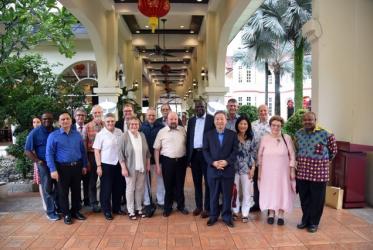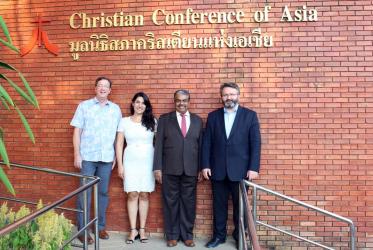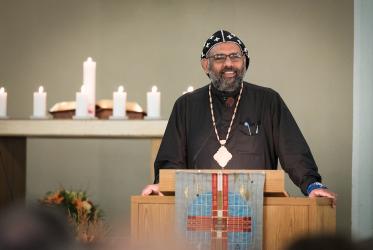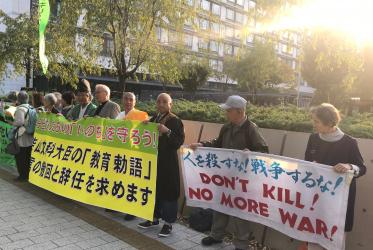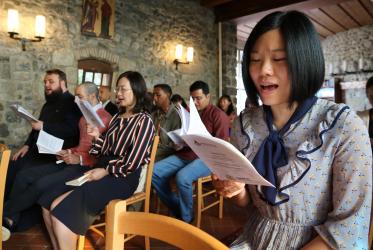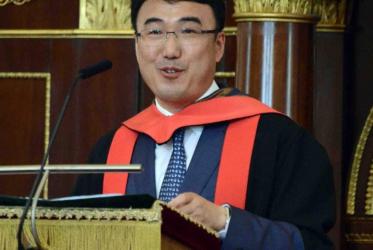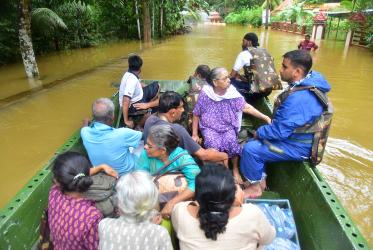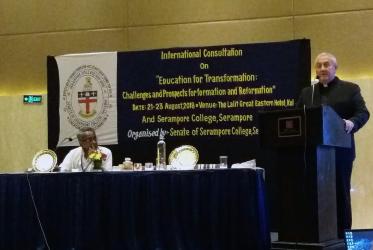Displaying 141 - 160 of 328
04 March 2019
Eager ecumenists embark on new missions
04 February 2019
Conciliar Unity: Whither Vision and Direction?
14 December 2018
All pilgrim routes lead to COP24
11 December 2018
Metropolitan Zachariah Mar Nicholovos celebrates Silver Jubilee
26 November 2018
Roundtable for Peace on the Korean Peninsula convenes in Atlanta
14 November 2018
WCC “receives with joy” verdict which resolves case of Asia Bibi
01 November 2018
Dalit Liberation Sunday empowers grassroots in India
15 October 2018
Paving the way for ecumenical studies, learning English in Bossey
24 September 2018
New students welcomed at WCC Bossey Ecumenical Institute
13 September 2018

